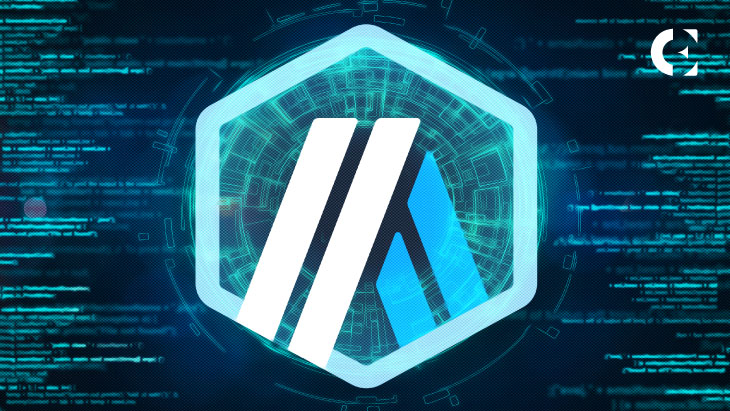- Arbitrum announced the launch of Arbitrum Orbit, a customized chain for developers.
- Orbit provides developers with the capability of creating their own chains using Arbitrum’s technology.
- Arbitrum highlighted several advantages of building decentralized applications in Orbit, including EVM+ compatibility and reliable gas pricing.
The Arbitrum Foundation has announced the launch of Arbitrum Orbit, a new product offering that allows developers to create their own self-managed Arbitrum Rollup and AnyTrust chains.
According to Arbitrum’s statement, Arbitrum Orbit offers developers the ability to create their own dedicated chain that settles on one of Arbitrum’s layer two blockchains. Currently, Arbitrum’s layer two blockchains include Arbitrum One, Arbitrum Nova, Arbitrum Goerli, and Arbitrum Sepolia.
Arbitrum has highlighted numerous benefits of building decentralized applications in Orbit, such as EVM+ compatibility, providing gas price reliability, and offering permissioned access to control who can access your chain’s data and deploy smart contracts. Moreover, Orbit utilizes the “most battle-tested” alternate data availability solution, enabling low transaction costs without compromising on high security and trust minimization.
The Orbit chain can also adopt any improvements made to the Arbitrum Nitro technology stack without requiring approval from the Arbitrum DAO. These improvements could include features such as permissionless validation, MEV capture, and cost reductions.
Arbitrum has also provided several examples of Orbit chains, including Xai, Syndr, Deri Protocol, Polychain Monsters, Sanko, Cometh, OURSONG, Superposition, and Meliora.
Arbitrum One and Arbitrum Nova both implement the Arbitrum Rollup and AnyTrust protocols, respectively. However, the Orbit chain can be configured to use the protocol that the developer wishes to employ.
Another key difference is that Arbitrum One and Arbitrum Nova are governed by the DAO, while Orbit gives blockchain developers the flexibility to choose their preferred governance structure for the chain.
Disclaimer: The information presented in this article is for informational and educational purposes only. The article does not constitute financial advice or advice of any kind. Coin Edition is not responsible for any losses incurred as a result of the utilization of content, products, or services mentioned. Readers are advised to exercise caution before taking any action related to the company.










